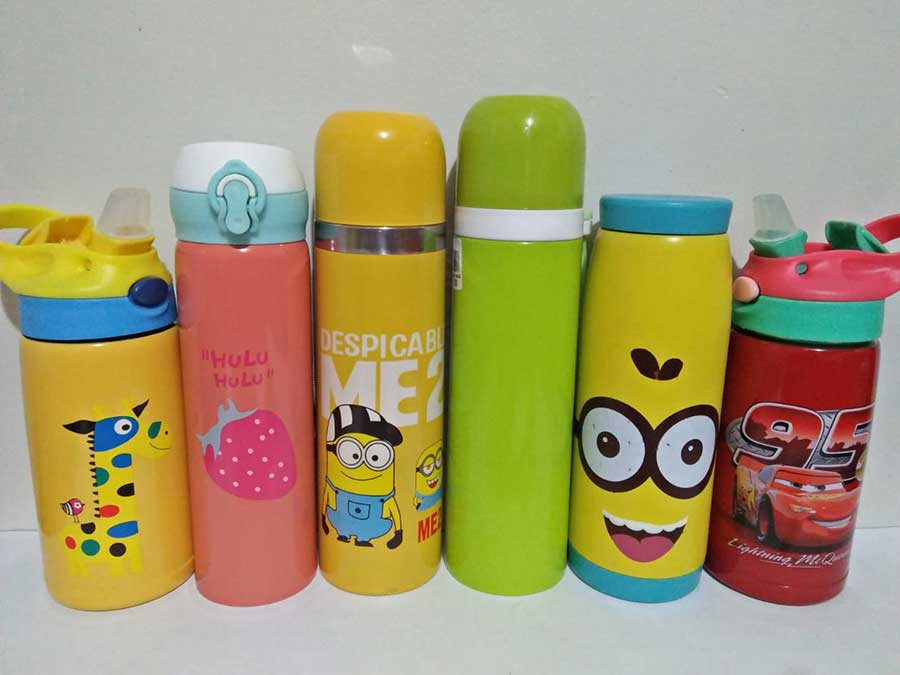
Not all refillable stainless steel water bottles are created equal as some may be coated with lead paint that violates the regulatory standard and poses a health risk.
The EcoWaste Coalition, an advocate for reuse and refill to fight plastic pollution and the climate crisis, urged consumers to be wary of painted refillable water bottles that are not certified as lead-safe.
Lead, a cumulative toxicant, has been banned in the manufacture of all paints, including paints utilized for architectural, decorative and industrial applications to reduce and eliminate risks from the use of lead paints and products, especially for children, workers and women of reproductive age.
“We do encourage consumers to shift from single-use water bottles to reusable ones such as those made of food-grade stainless steel and refill on-the-go. While these sturdy non-plastic bottles are good for health and the planet, consumers are advised to steer clear of products coated with paints containing lead, a health-damaging substance,” said Thony Dizon, Chemical Safety Campaigner, EcoWaste Coalition.
“The leaded surface coating on the exterior of a metal water bottle will chip, wear and deteriorate as a result of frequent use. The lead on the paint may end up being ingested by the user, especially by a child who is unaware of the health risk,” he said. “Lead can cause adverse health effects if ingested,”
The group aired the warning on lead painted refillable water bottles after detecting high levels of lead on the surface coatings of six out of 13 samples that the group recently purchased for P119 to P250 each from retail stores in Manila and Quezon Cities.
The non-detection of lead in seven samples indicates that refillable water bottles can be safely decorated with lead-safe paints, the group said.
Based on the chemical screening conducted by the group using a handheld X-Ray Fluorescence (XRF) device, the six painted metal water bottles had lead content ranging from 1,013 to 62,400 parts per million (ppm) way above the national standard of 90 ppm.
A plain green refillable water bottle was found to contain 62,400 ppm of lead; a red bottle with a “car” design had 11,400 ppm; a coral pink bottle with a “strawberry” design had 9,274 ppm; a yellow bottle with a “giraffe” design had 6,164 ppm; a yellow bottle container with a “Minion eyes” design had 2,382 ppm; and a yellow bottle with “Minion” characters had 1,013 ppm of lead.
As per the DENR-issued Chemical Control Order for Lead and Lead Compounds, lead in all paint types must not exceed the 90 ppm total lead content limit.
As the surface coatings of these refillable water bottles are not compliant with the law, the EcoWaste Coalition asked retailers to voluntarily send them back to their distributors and to stop selling similar products that lack certificate of analysis and conformity with the 90 ppm limit.
“Lead is toxic and is harmful to everyone,” according to the World Health Organization (WHO), which has also warned that “there is no safe level of lead exposure.”
“Young children are most vulnerable (to lead exposure),” the WHO said. “Their nervous systems are still developing and they absorb 4-5 times more lead than adults, which can cause intellectual disability, underperforming at school and behavioral issues.”
According to the Global Alliance to Eliminate Lead Paint, “children who suffer from lead poisoning will feel its permanent impacts on health throughout their lives.”



















